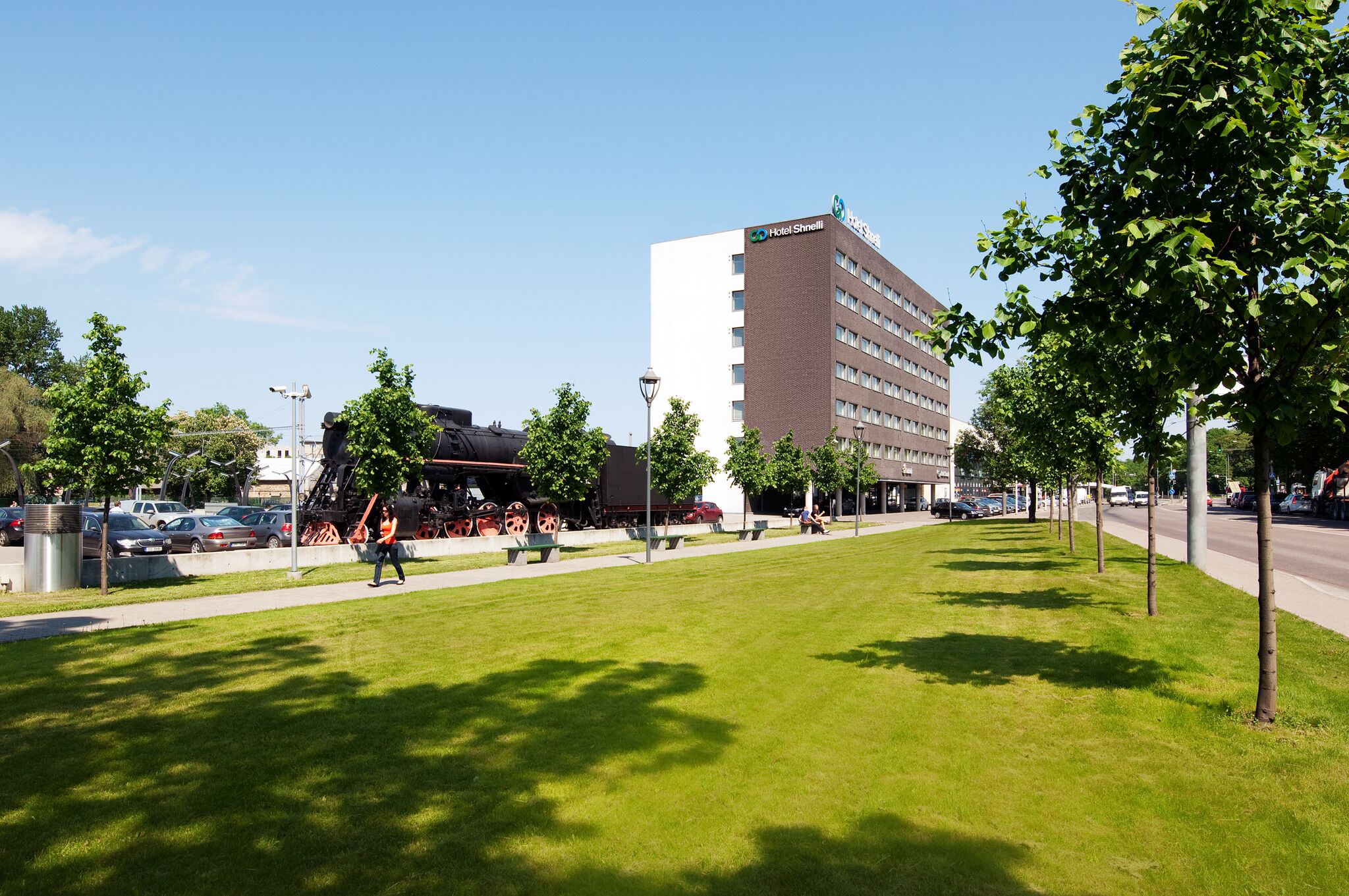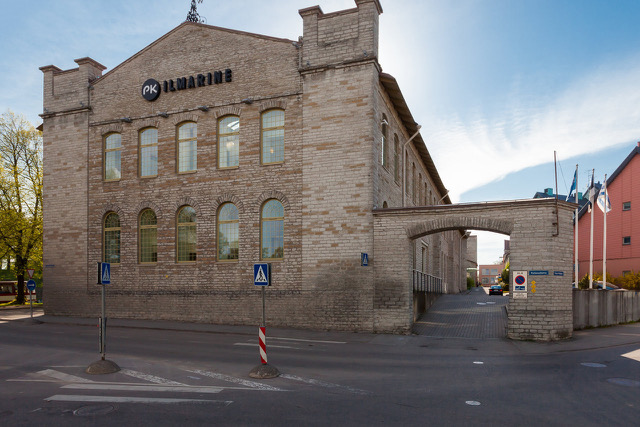The Conference will address the subject of implementing the safety features of medicinal products in the European Union
November 8-9, 2017
Tallinn, Estonia
Highlights of the Conference Safer Europe without Falsified Medicines, held on 8 – 9 November in Tallinn
The Delegated Regulation (EU) 2016/161, which applies as of 9th of February 2019 lays down detailed rules for the safety features appearing on the packaging of prescription only medicinal products for human use. The conference was aimed to understand the current state of implementation of the safety features at the European Union level and in Member States and to identify the challenges for stakeholders and governments in implementing the safety features of medicinal products. Ideas for coping with the challenges were developed and shared.
During the conference it was agreed by most of the speakers that all stakeholders should act and cooperate together to run the new system after 14 months. It was pointed out that this is a Pan-European project and strong involvement and cooperation of all supply chain stakeholders on European and national level is needed.
The biggest challenge to the stakeholders is to connect approximately 2 500 manufacturing companies to the European Medicines Verification System (EMVS), establish national systems in 32 countries, connect many thousands of pharmacies and wholesalers and serialise all appropriate pharmaceutical packs. By now 26 countries have created the National Medicines Verification Organisations (NMVO), 15 contracts with the IT providers for the new system have been signed and 7 additional NMVOs have already chosen the company. Although 50% of the NMVOs are currently somewhat delayed with starting the project’s implementation phase, the goal is still achievable. Close cooperation of the European Medicines Verification Organisation (EMVO) and all NMVOs is mandatory for success of the project.
Different stakeholders brought out their main challenges. Pharmacies have to upgrade the pharmacy software and products libraries, new scanners and procedures are needed along with training of the pharmacy employees. Continuous cooperation of supply chain partners and the NCAs is needed. Wholesalers pointed out that the consolidated data on wholesalers distribution authorization holders is lacking in EU and it is difficult to find out which organisations have to be connected to the repository system. Manufacturers of medicinal products and other stakeholders would welcome a joint response from European Commission and the NCAs on the various coding and labelling issues which should be solved as soon as possible to allow serialisation activities. Hospitals should be involved in the NMVOs, both the contractual and technical on-boarding is required. The awareness of hospitals about the safety feature project is unfortunately still somewhat limited, communication strategies should be defined that have to include the NMVOs and the NCAs. The best practices of the Member States on issues and solutions should be shared. NCAs have to play their role by raising awareness and supporting the implementation process. The coding requirements and regulatory pathways to implement the safety features should be in place in all Member States as soon as possible. Alignment across countries has to be achieved. NCAs have to ensure the supervision of the repository systems and, together with the European Commission, help to simplify implementation requirements, provide clarity and harmonisation across Europe.
Access to data in the repositories remains as one of the important topics yet to be solved and ongoing dialogue between European Commission, the Member States and the EMVO is required. The EMVS is designed primarily as a verification system but Member States need to have access to data in the repositories for supervision of repository system and investigations, reimbursement, pharmacovigilance or pharmacoepidemiology purposes as stipulated in the Delegated Regulation. Good progress has been achieved during previous months but there still remains much to do.
The influence of the new requirements to the availability of medicines was discussed by the stakeholders. The impact of EMVS on medicines availability is difficult to assess, continuity of supply for most of the medicines should not be adversely affected by the EMVS implementation. However, as pointed out by some of the stakeholders, the EMVS could in their view be of use for prevention of shortages by improving available information for authorities, manufacturers and the supply chain, but the process needs to be elaborated further together with respective agreements to be made between all stakeholders.
The conclusion of the conference was that Europe can be ready to implement the safety features if all stakeholders make a strong commitment and effort.
Wednesday, November 8, 2017
Thursday, November 9, 2017
12:00
13:00
Estonian Ministry of Social Affairs
EU Commission
Mr Jevgeni Ossinovski, Estonian Minister of Health and Labour
Ms Maris Jesse, Deputy Secretary General of the Ministry of Social Affairs of Estonia
Keynote address: Mr Andrzej Rys, Director of Health Systems and Products DG SANTE, European Commission
13:30
EMVO
NMVOs
Chair: Mr Andreas Walter, General Manager, EMVO
Speakers: Mr Raul Mill, Chief Executive, REKS
Ms Maija Gohlke-Kokkonen, Executive Director, FiMVO
Ms Leonie Clarke, Project Manager, IMVO
Ms Illiana Paunova, Executive Director, BgMVO
15:00
15:30
EU stakeholders and EMVO
Chair: Mr Per Troein, VP Strategic Partners QuintilesIMS
Speakers:
Ms Monika Derecque-Pois, Director General, GIRP
Mr Richard Freudenberg, Chief Executive, EAEPC
Mr Michael Rose, Vice President, Supply Chain Visibility, Johnson & Johnson and Chair of EFPIA’s Supply Chain
Ms Jurate Svarcaite, Secretary General, PGEU
Mr Adrian van den Hoven, Director General, Medicines for Europe
5 minutes each presenter, panel discussion
17:00
17:30
FAMHP
HOPE
EAHP
EMVO
Mr Philippe De Buck, FAMHP
Mr Pascal Garel, Chief Executive, HOPE
Ms Stephanie Kohl, Policy Officer, EAHP
Mr Hugh Pullen, Chairman, EMVO
18:30
9:00
HMA – Heads of Medicines Agencies
EMVO stakeholders
Chair: Ms Belén Escribano Romero, Head of the Pharmaceutical Inspection and Enforcement Department at AEMPS
Speakers:
Mr Michael Rose, Vice President, Supply Chain Visibility, Johnson & Johnson and Chair of EFPIA’s Supply Chain
Ms Jurate Svarcaite, Secretary General, PGEU
Ms Monika Derecque-Pois, Director General, GIRP
Ms Jan MacDonald, Head Patient Information Quality, MHRA
Ms Agnès Mathieu-Mendes, Deputy Head, DG SANTE, European Commission
10:30
11:00
Estonian State Agency of Medicines (SAM)
EMVO stakeholders
Chair:
Ms Kristin Raudsepp, Director General, Estonian State Agency of Medicines
Speakers:
Mr Adrian van den Hoven, Director General, Medicines for Europe
Mr Richard Freudenberg, Chief Executive, EAEPC
Ms Stephanie Kohl, Policy Officer, EAHP
12:00
Moderator:
Ms Agnès Mathieu-Mendes, B4, Deputy Head, DG SANTE, European Commission
Panellist:
Mr Andreas Walter, General Manager, EMVO
Ms Anci Kvarnström, CEO, PhQConsulting AB, NMVO Sweden
13:00
Registration is closed
November 8-9, 2017
Tallinn, Estonia
The Conference participants will get a special discount at Nordic Hotel
Forum, Go Hotel Shnelli or PK Ilmarine Hotel with the password fmd.

Nordic Hotel Forum, the superior four-star business hotel, welcomes you
on the edge of the Old Town in the heart of Tallinn and a 10-minute walk
away from the conference venue.

Hotel is an ideal stop for anyone who appreciates kind service, superb
location and affordable prices. Only a 10-minute walk away from the
conference venue.

With just a 3 minute walk to the venue, PK Ilmarine Hotel offers you
amazing location just next to the Old Town. For special discount contact
us: booking.ilmarine@pkhotels.eu.
Estonia is a country in the Baltic region of Northern Europe bordered to
the north by the Gulf of Finland, to the west by the Baltic Sea, to the
south by Latvia and to the east by Lake Peipus and Russia. Across the
Baltic Sea lie Sweden and Finland.
Tallinn is the capital city
of Estonia and a perfect destination if you want to combine the comforts
of modern world and luxurious adventures with rich cultural scene in
the local historical setting.
Tallinn Old Town is one of the
best preserved Hanseatic town centres in the world. The oldest
continuously running pharmacies in Europe, Reval Raeapteek, is located
in Tallinn. Raeapteek has been in the same building since the early 15th
century, celebrating its 595th anniversary this year. A stone’s throw
away you’ll find the city’s business centre with modern towers and
luxurious hotels, trendy neighbourhoods and large shopping centres.
First established in the early medieval era, today’s Tallinn is an
exciting mix of old and new.
Here’s the good news: with Tallinn
being such a compact, green capital, you can cover a lot in just a
weekend and enjoy short scenic strolls while at it.
Population
density in Estonia is 30.3 people per km². That is almost four times
less than EU’s average – 116.7 people per km² –, making Estonia the
third sparsely populated country in EU.
Estonia’s air is among
the cleanest in the world, and the freedom to roam is codified in law.
Pick berries, mushrooms, or herbs. Go hiking. Or sit still and take
inspiration from the sounds of nature.
A short ride is all
that’s required to experience Estonia’s full natural diversity. Little
distance separates cities and nature. Our versatile cultural heritage
and seasons of the year make every visit unique.
"e-Estonia",
the E is for electronic, has become the go to tag to describe Estonia's
immensely successful love affair with all things networked and
digitised. Country wide enthusiasm for the efficiency of E has
enthralled both citizens and policymakers alike. Estonian programmers
have been behind the creation of digital brands such as Skype, Hotmail
and more recently Transferwise (a online currency converter which has
attracted investment from the likes of Richard Branson). The Estonian
state currently offers 600 e-services to its citizens and 2,400 to
businesses. For years, the digital prescription and digital health
record have been used in Estonia.